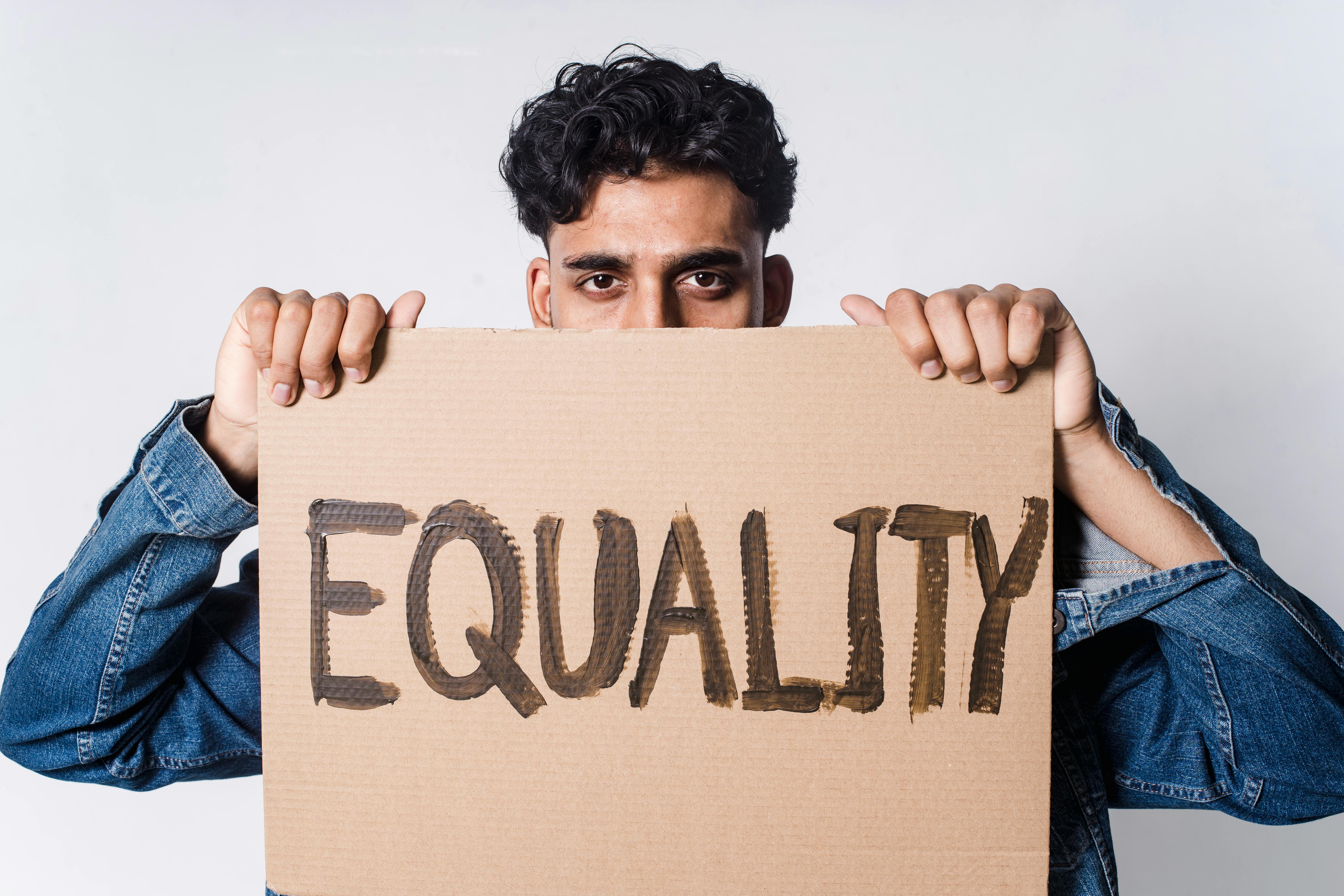Equality is a foundational concept tied to human rights, justice, and inclusivity across societies. However, global disparities in political, economic, and social contexts demonstrate the difficulty of achieving equality. This gap underscores the vital need to understand its role in fostering harmony, growth, and mutual respect in diverse communities.
In this article, we provide an in-depth examination of equality: what it means, why it’s essential, and how it promotes societal well-being. You’ll discover its importance in democracy, economic stability, and social cohesion, while exploring barriers to achieving equality and effective strategies for promoting inclusivity and fairness.
What Is Equality?
Understanding equality begins with defining its key aspects and differentiating related concepts.
What Is Equality, and Why Does It Matter?
Equality represents the principle of ensuring equal treatment and access to opportunities for all individuals, regardless of their background. In social contexts, it promotes fairness across race, gender, and ethnicity. Politically, it safeguards rights like voting and representation, while economically, it supports equitable access to resources and opportunities.
At its core, equality emphasizes fundamental human rights, as endorsed by the Universal Declaration of Human Rights, highlighting every individual's right to dignity, freedom, and fairness.
How Is Equality Linked to Justice and Inclusivity?
Equality is intertwined with justice and inclusivity. Inclusivity is critical to fostering equal participation in society, ensuring communities benefit from diverse perspectives and talent. Equality reduces discrimination by promoting frameworks of fairness that challenge systemic hierarchies.
By instituting justice and inclusivity, equality nurtures equitable societal practices, enhancing collaboration and reducing social divisions.
What Is the Difference Between Equality and Equity?
While equality focuses on providing the same opportunities to all, equity emphasizes fairness by tailoring support to individual needs. For instance, equality may mean offering identical resources to employees, but equity addresses discrepancies by allocating resources based on specific barriers.
Programs like affirmative action highlight equity by addressing historical imbalances, enabling marginalized groups to thrive. Both approaches are essential, yet their goals and strategies differ, necessitating a complementary understanding.
Why Is Equality Important?
Equality plays a transformative role in the stability and growth of various domains within society.
Why Is Equality Important in Democracy?
Democracy thrives on principles of equality, ensuring that every individual has a voice and active participation in governance. Equal voting rights and political representation ensure fair policymaking and the legitimacy of democratic systems.
Political equality prevents power imbalances that could undermine governance, reinforcing fairness and the active involvement of diverse populations.
What Are the Benefits of Equality and Inclusivity?
Equality fosters social cohesion by reducing disparities that could lead to unrest. Inclusive communities benefit from trust, stability, and shared values. Economically, equality boosts productivity and innovation by harnessing diverse ideas. According to a 2023 study by the World Economic Forum, inclusive workplaces report 25% higher profitability due to diverse contributions.
Why Is Equality Assumed to Be Good?
Philosophically, equality is grounded in ethical principles that all individuals deserve equal treatment. Historically, societies have shifted from rigid hierarchies to frameworks that prioritize fairness. For instance, global movements for civil rights illustrate how equality has redefined societal norms, further advancing justice in interconnected societies.
Types of Equality
Equality encompasses varied dimensions that address different societal sectors and issues.
What Are the Major Types of Equality?
Equality manifests in political fairness, ensuring equal voting rights and representation. Economic equality relates to balanced wealth distribution and fairness in wages and resource allocation. Both forms are essential for addressing power and resource disparities.
What Is the Role of Equality in Society?
Social equality addresses discrimination in aspects like race, gender, and class, reducing systemic biases. Similarly, ensuring equal access to education and healthcare eliminates barriers that disproportionately impact marginalized groups, improving quality of life and future opportunities.
Measuring Inequality in Real-World Contexts
Metrics such as income gaps, employment statistics, and education access help measure inequality. Organizations like The World Bank and OECD release annual inequality reports, providing benchmarks for progress or regression worldwide. These tools enable policymakers to identify areas requiring immediate action.
Barriers to Equality
Structural and systemic obstacles hinder progress toward equality.
What Are the Barriers to Equality?
Cultural and historical biases embedded in institutions perpetuate inequality. For instance, structural racism in judiciary systems limits fairness in legal proceedings. Similarly, systemic inequalities in education and employment restrict upward mobility, particularly for underserved populations.
The Impact of Inequality on Society
Inequalities disproportionately affect marginalized groups, exacerbating poverty, unrest, and reduced access to opportunities. Prolonged inequality also stifles economic growth by limiting the market potential of underserved demographics. Socially, it fosters divisions that destabilize communities.
Why Is Equality Difficult to Achieve?
Competing political agendas often deprioritize equality in favor of economic gains or power consolidation. Additionally, deep-seated prejudices hinder societal progress. According to a 2024 UN report, entrenched gender biases in developing nations persist due to inadequate educational reform, illustrating the complexity of dismantling ingrained inequalities.
How to Promote Equality
Achieving equality requires proactive measures at individual, organizational, and governmental levels.
What Can We Do to Advance Equality?
Education and awareness campaigns play a critical role in addressing prejudices. For example, teaching inclusivity in schools fosters empathy and collaboration. Governments can implement affirmative policies such as equal pay regulations and inclusive hiring practices to reduce disparities.
Strategies for Promoting Inclusivity and Diversity
Promoting inclusivity requires intentional efforts, such as:
-
Encouraging businesses to adopt workforce diversity programs and equitable pay structures.
-
Supporting non-profits focused on racial and gender equality advocacy.
-
Expanding access to education and vocational training programs in underserved regions.
Policy reforms backed by community engagement enable lasting impacts.
Examples of Successful Equality Initiatives
Globally recognized programs like UNESCO’s gender equality initiatives offer vital lessons. Countries with high equality indices, such as Finland, prioritize accessible education, equitable healthcare policies, and progressive taxation, which collectively reduce disparities and enhance quality of life.
Specialized Insights: Equality vs Equity
Distinguishing between equality and equity is vital for actionable solutions.
What Is Equity, and Why Does It Matter?
Equity ensures fairness by addressing unequal starting points and systemic disadvantages. Unlike equality, it accommodates varied needs by providing tailored support. For instance, equity initiatives like need-based scholarships bridge gaps in educational access.
Key Differences Between Equality and Equity
Equality seeks uniform distribution of resources, while equity addresses inequalities by reallocating resources based on need. Equity has a broader impact by enabling historically marginalized groups to succeed, balancing outcomes over time.
Equality's Broad Impact Summary
Equality is vital in fostering justice, inclusivity, and harmonious societal structures. Its importance transcends personal and collective growth, ensuring fair treatment in political, economic, and social environments. Addressing barriers, understanding its complexity, and promoting inclusivity are key steps toward building equitable societies globally.

